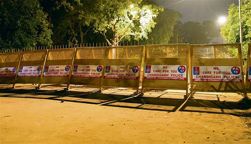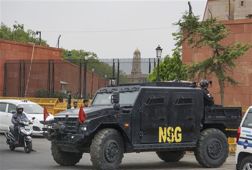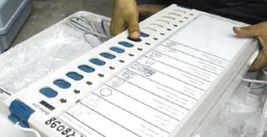Beijing, November 25
Leaked government documents outlining the need to prevent escape, double lock doors and constantly monitor detainees in China’s network of internment camps in Xinjiang refute Beijing’s defence of “vocational education centres” in the region, experts say.
Obtained by the International Consortium of Investigative Journalists (ICIJ) and published by 17 media outlets worldwide on Sunday, the documents show the strict protocols governing life in the camps in Xinjiang, where an estimated one million Uighurs and other mostly Muslim minorities are held.
In one document, officials are told to monitor inmates at all times — including during toilet breaks — to prevent escape. Staff is also banned from befriending inmates and engaging in “personal interactions” to prevent “collusion”, the document read.
“It shatters the Chinese Communist Party’s (CCP) narrative about these camps as benign vocational training centres where Uighurs and other Chinese Muslim(s) willingly undertake training,” said James Leibold, an expert on ethnic relations in China and a professor at Melbourne’s La Trobe University.
The leak comes one week after The New York Times reported, based on more than 400 pages of internal papers it had obtained, that Chinese President Xi Jinping ordered officials to act with “absolutely no mercy” against separatism and extremism in a 2014 speech following a Uighur militant attack on a train station.
After initially denying their existence, China acknowledged that it had opened “vocational education centres” in Xinjiang aimed at preventing extremism by teaching Mandarin and job skills.
Former detainees describe the facilities as indoctrination camps that are part of a campaign to eradicate Uighur culture and religion.
Officials were ordered to keep strict secrecy about the “highly sensitive” centres, with staff forbidden from bringing mobile phones or cameras into “teaching and management areas”, according to one document.
Referring to detainees as students, the guidelines lay out how staff should manage their day-to-day lives, such as by ensuring “timely haircuts and shaves”, while also emphasising that detainees are barred from having cellphones. — AFP


























